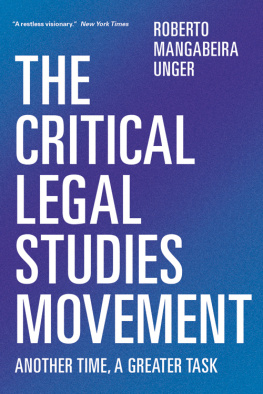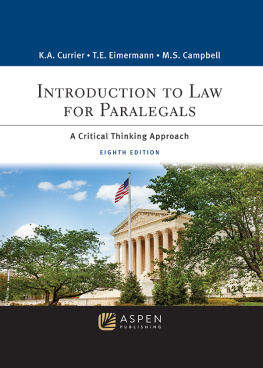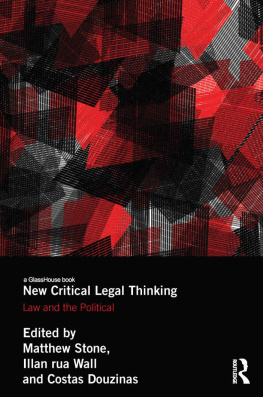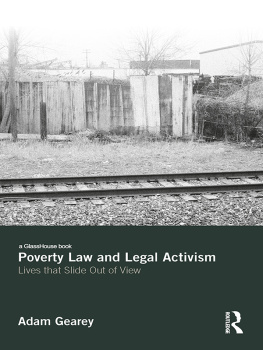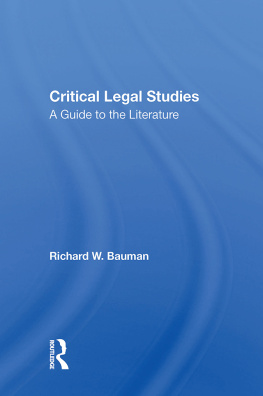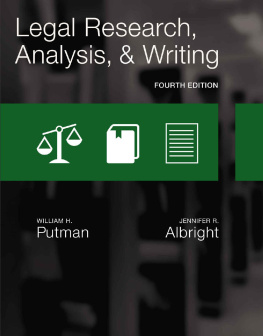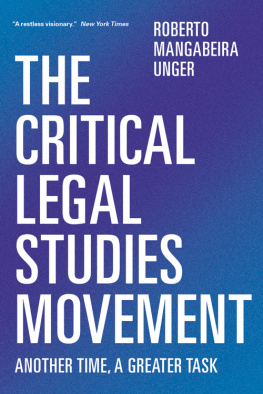T he Critical Legal Studies Movement is a manifesto for a movement of ideas in legal thought. This introduction to a new edition of the original book has two aims. Its first purpose is to place both the movement and the book in context and to reconsider both the book and the movement in the light of subsequent developments. Its second goal is to look to the future, and to consider the vocation of legal thought now.
The critical legal studies movement represented, both by design and in fact, a forceful intervention in the history of legal ideas in the United States and more generally in the world. The meaning as well as the importance of such an intervention depends on what follows it. I address both the movement and the book as a step in the development of an unfinished agenda of ideas about law.
A central claim made explicitly in this introduction and implicitly throughout this book is that the potential of law and legal thought to inform the self-construction of society under democracy remains largely untapped. Surrender to the constraints narrowing our vision of what law is and can become undermines our ability to make use of this potential.
In addressing both the recent past and the present vocation of legal thought, we face a difficulty that the social sciences and humanities confront in far smaller measure: the national character of law. The critical legal studies movement was an episode in American life. Americans were chiefly responsible for launching it. It addressed American circumstances, and embraced attitudes in the categories of a discourse that, if not solely American, was expressed in terms that Americans might readily understand and find appealing.
Nevertheless, the issues at stake in the past and future contexts that the book and this introduction address are not peculiar to the United States; they arise throughout the world. A circumstance analogous to the one in which the critical legal studies movement emerged has occurred in Europe and in the civil-law countries. The precursors and sequels of the movement and its adversaries and allies have counterparts there, often under different labels. The failure to remain faithful to the greater vocation of legal thought is a worldwide failure, with global consequences.
From the outset, I viewed the critical legal studies movement as a contribution to a worldwide change in the direction of legal thought. It is in that same spirit that I here reconsider the events and ideas with which this book deals. My interest is less in what is distinctively American than in what has significance for legal thought around the world.
Let the reader correct for the specialness of the American situation and the American words. Let him give the argument its most inclusive reach. In this effort, I shall help him by addressing the movement and this manifesto in a manner designed to emphasize what is of worldwide rather than of merely provincial significance in the situation and in the future of legal thought.
Critical legal studies was never intended to generate a permanent genre of legal writing, or to take its place among a standing cast of schools of legal theory. It was a disruptive engagement in a particular circumstance. Consider now the context in which it appeared, first from the standpoint of its relation to the then dominant practice of legal analysis and second from the perspective of its connection with the political situation that it faced in the United States and in the world. Let me call these two perspectives the internal and the external contexts, if by internal we might mean what has to do with law and legal thought and by external what regards the condition of society. We can in turn distinguish methodological and substantive aspects of the internal point of view: those that have to do with ways of thinking about law and those that concern the content of law.
The practice of legal analysis that the movement found in command of legal thought represented law as a repository of impersonal principles of right and of policies responsive to the public interest. It interpreted each fragment of law by attributing purposes to it. It described those purposes in the idealizing language of policy and principle. Call this approach to law, as it was called by some of its theoreticians, the method of reasoned elaboration.
According to this method, law was to be interpreted in the best possible lightthat is to say, the light least tainted by the powerful interests that were likely to have exerted the predominant influence in the political contest over the content of law, especially through legislation. By putting the best light on the law, the professional interpreters of law, within or outside adjudication, could, according to this view, improve the law. They could become the agents through whose efforts the law works itself pure, even in an age in which legislation had long come to overshadow law made by jurists, whether holding judicial office or not.
The major schools of jurisprudence differed in how they proposed to ground the impersonal principles and public-regarding policies that were supposed to control the interpretation of law. For one school, these policies and principles were to be couched in a political theory of rights; for another, in a normative view of efficient resource allocation; and for yet another in a conception of the methods suitable to each agent in the legal systemlegislators, administrative agencies, and private orderers, as well as courts.
Regardless of these theoretical differences and disputes, the reasoned elaboration of lawpurposive, generalizing, and idealizingmade the same crucial assumptions. To a large extent the guiding conceptions of policy and principle that enabled the interpreter to make sense of law and that guided him in his practical work were supposed to be already latent in the extant law, waiting to be revealed by the legal analyst.

